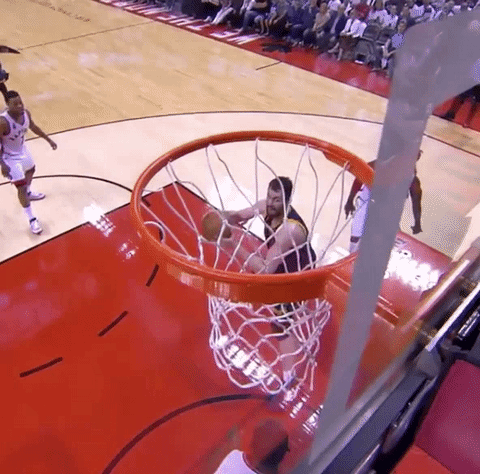Germany’s growing medical marijuana market has been labelled the number one international business opportunity for Canadian cannabis companies.
Reasons include its population and GDP—both of which more than double Canada’s—its connections to the rest of Europe and its political stability, according to a 2018 report by BMO Capital Markets.
And of course, Germany refuses to allow domestically grown cannabis to enter its market. They operate under a strict “imports only” policy, which Canadian LPs are greatly benefiting from.
How Germany came to rely on Canada for cannabis
The German drug regulator BfarM, the equivalent of the FDA, requires cultivators to have “previous experience supplying medical marijuana markets.”
Did German companies have any experience? Damn right they didn’t. So they were cut from consideration, as were countries that didn’t hit the high mark of strict German national drug policies.
Only two countries made the cut: Canada and the Netherlands. Of those two, Canada now supplies the large majority of Germany’s cannabis.
The two countries like each other. Companies like The Green Organic Dutchman (TGOD.T) are always attending and sometimes speaking at German and Canadian investor conferences.
Companies like CROP (CROP.C), Century 21 Investments (CXXI.C) and Ascent Industries (ASNT.C) are building facilities in other areas of Europe. Being close to Germany will be a critical component of exporting into Germany. Invictus MD (GENE.V) is also setting sights on Germany.
Companies like Isodiol (ISOL.C) may not be building European facilities, but they are already shipping product from North America directly to European retail locations.
Even Sproutly’s (SPR.C) new JV partner, Global Canna Labs, has ambitions to create a GMP facility and export products they sell (such as Sproutly’s) to Germany.
If there was a threat to Canada’s near-monopoly, it would be action by BfarM that ends the bottleneck, enables domestic German cultivation and prioritizes local growth.
But in court and in practice, Germany is doing exactly the opposite.
The battle BfarM won’t stop fighting
Fast-forward to today, Germany’s cultivation licensing applications have been delayed yet again much to the dismay of the applicants.
After Germany legalized medical marijuana in the beginning of 2017, BfarM issued out a tender process for any companies that wanted to apply to become cultivators in Germany. Five Canadian LPs made it to the second round of considerations. No German companies made the list.
BfarM was then successfully sued for the way they organized their tender on the grounds it unfairly prohibited German companies from becoming licensed cultivators.
And so a cultivation licensing bid that was supposed to be over last summer was delayed. Or, more accurately, completely cancelled and then followed by a new tender process being announced a week later.
When the tender was reestablished, new rules were put in place making it slightly easier for German companies to bid for licensing. The process still largely favours Canadian companies, since experience growing (legal) medical marijuana is still considered an asset.
The initial deadline was Summer 2018, but it wouldn’t last. In classic BfarM style, they kept dragging their feet, causing delays and whining over every inch taken. Then, the application deadline that was initially set for Summer 2018 was delayed to October 2018.
October 2018’s deadline was delayed to November 2018, and, now that November has come and gone, new delays have pushed the application deadline until December 2018.
After multiple delays and still no resolutions, not to mention no end in sight to the delays, sources in Germany project no cultivation licenses will be handed out until April 2019 at the very earliest. It’s likely it could be delayed even further.
The licenses
These numbers are freely available to any interested parties.
- Canada is expected to consume 600,000 kilograms of cannabis in 2020.
- Germany green-lit 21,000 kilograms of cannabis imports in 2018.
- German recreational cannabis usage is up 55 percent since 2005—they have a taste for the stuff.
- Germany is removing barriers to prescription, especially doctor reluctance, which should increase consumption rates.
With that in mind, how much cannabis do you think Germany’s cultivation licenses allow cultivators to grow in Germany?
A) Approximately 50,000 kilograms of cannabis per year.
B) Exactly 100,000 kilograms of cannabis per year.
C) More than 100,000 kilograms but less than 150,000 kilograms of cannabis per year.
D) Approximately 10,000 kilograms of cannabis per year.
The answer is D. Germany’s cultivation licenses allow cultivators to grow a grand total of 10,400 kilograms of cannabis within the country’s borders at maximum capacity.
How is Germany going to cost compete with the sheer number of Canadian companies that are projecting over one million square foot greenhouses? They’re going to need the support of their government—and so far they’re not getting it.
According to the fine-print in the tender, German cultivators will be capped at 10,400 kilograms of cannabis for the next four years (or until BfarM smartens up).
On the other hand, The Green Organic Dutchman is projecting that they’ll grow 175,000 kilograms at a highly competitive price-per-gram thanks to a combination of mass-manufacturing facilities in Canada and low-cost manufacturing facilities in Jamaica.
Do we believe everything every cannabis company says? Not always. But even if TGOD grows only a third of their projections, they’re still growing six times more than Germany.
Supreme Cannabis (FIRE.V) is on track to grow 50,000 kilograms of cannabis, five times the yearly projection of Germany. These are just individual LPs, of which there are many.
10,400 kilograms is not enough to satisfy current day demand, let alone future growth. And while cannabis-approval accrues rapidly, production facilities tend take a long time to set up. Germany will always be a step behind, as Canadian LPs race ahead without them.
One last interesting note: German cultivators aren’t allowed to grow CBD-dominant marijuana strains. Germany will be growing a total of 400 kilograms of CBD-blended strains per year, and no CBD-dominant ones.
German officials would have known CBD attracted ravenous demand on legalization day and that CBD also enhances the medicinal properties of THC significantly, if they had just been reading Equity.Guru‘s articles like they’re supposed to.
Lawyer Kai Niermann of Paderborn Germany, sums it up quite bluntly.
The quantities put out to tender are still so meager that it remains in doubt whether or not the production of medical cannabis in Germany can actually be of economic interest to interested companies. In view of the already approved import quantities of 21 tonnes in 2018 and a further increase in demand it remains cloudy why the German Federal Government is blocking the production of medical cannabis in their own country by tendering out such small quantities rather than giving a new and emerging industry in the country a chance.
The licences in brief
- In this second tender process (the first was cancelled then reinstated), German cultivators have a chance at winning licenses.
- Previous cannabis cultivation experience is still an asset.
- Companies are allowed to apply as groups, working together to fill in each others weaknesses.
- German companies will likely apply in coordination with Canadian LPs rather than try to compete with them—cementing Canada’s hold in the country.
- These licenses start out small, allowing 10,400 kilograms of cultivation total, but will likely increase within the next five years.
- CBD cultivation is pitiful, maxed at 400 kilograms per year.
How Canadian LPs should respond
They should celebrate.
If German officials want to leave the cannabis supply of the largest population-base in Europe to foreigners from the other side of the world, so be it. It’ll be two years at least before a fraction of that supply is taken back by German cultivators, and who knows how many years it’ll be after that before they even grow 50 percent of their own supply.
Keep your eyes peeled to see how this cultivation license tender plays out. We’ll be doing the same.
— Jamal
Disclaimer: Isodiol, The Green Organic Dutchman, CROP, C21, Invictus MD, Sproutly, Supreme and Ascent are all Equity.Guru marketing clients.



Thanks for the article but I am not a lawyer.
You may have picked up my lawyer’s comments on my blog at http://www.cenedella.de
Please make the credit to the above quote to him:
Kai Niermann of Paderborn Germany http://www.kfnplus.de
Thanks,
Phil “I am not a lawyer” Cenedella
Phillip – for someone who has just been falsely accused of being a lawyer – you are very calm and good-natured. Thank you for pointing out the error. We apologize for it. The quote citation has been amended.
Funny how you failed to mention the biggest canadian company in germany aurora cannabis with the biggest foot print there
Not funny at all. We look for profit opportunities.